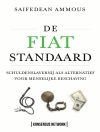Informal Workers and Collective Action features nine cases of collective action to improve the status and working conditions of informal workers. Adrienne E. Eaton, Susan J. Schurman, and Martha A. Chen set the stage by defining informal work and describing the types of organizations that represent the interests of informal workers and the lessons that may be learned from the examples presented in the book. Cases from a diverse set of countries—Brazil, Cambodia, Colombia, the Dominican Republic, Georgia, Liberia, South Africa, Tunisia, and Uruguay—focus on two broad types of informal workers: ‘waged’ workers, including port workers, beer promoters, hospitality and retail workers, domestic workers, low-skilled public sector workers, and construction workers; and self-employed workers, including street vendors, waste recyclers, and minibus drivers.These cases demonstrate that workers and labor organizations around the world are rediscovering the lessons of early labor organizers on how to aggregate individuals’ sense of injustice into forms of collective action that achieve a level of power that can yield important changes in their work and lives. Informal Workers and Collective Action makes a strong argument that informal workers, their organizations, and their campaigns represent the leading edge of the most significant change in the global labor movement in more than a century.Contributors
Gocha Aleksandria, Georgian Trade Union Confederation
Martha A. Chen, Harvard University and WIEGO
Sonia Maria Dias, WIEGO and Federal University of Minas Gerais, Brazil
Adrienne E. Eaton, Rutgers, the State University of New Jersey
Mary Evans, Rutgers, the State University of New Jersey
Janice Fine, Rutgers, the State University of New Jersey
Mary Goldsmith, Universidad Autónoma Metropolitana-Xochimilco
Daniel Hawkins, National Trade Union School of Colombia
Elza Jgerenaia, Labor and Employment Policy Department for the Ministry of Labour, Health and Social Affairs, Republic of Georgia
Stephen J. King, Georgetown University
Allison J. Petrozziello, UN Women and the Center for Migration Observation and Social Development
Pewee Reed, Ministry of Commerce and Industry, Republic of Liberia
Sahra Ryklief, International Federation of Workers’ Education Associations
Susan J. Schurman, Rutgers, the State University of New Jersey
Vera Alice Cardoso Silva, Federal University of Minas Gerais, Brazil
Milton Weeks, Devin Corporation
विषयसूची
Introduction, Adrienne E. Eaton, Martha A. Chen, and Susan J. Schurman Part I. Formalizing or Reformalizing Distanced Employment Relationships1. Port Workers in Colombia: Reinstatement as Formal Workers, Daniel Hawkins2. Retail and Hospitality Workers in South Africa: Organized by Trade Union of Formal Workers to Demand Equal Pay and Benefits, Sahra Ryklief3. Haitian Migrant Workers in the Dominican Republic: Organizing at the Intersection of Informality and Illegality, Janice Fine and Allison J. Petrozziello4. Domestic Workers in Uruguay: Collective Bargaining Agreement and Legal Protection, Mary R. Goldsmith5. Beer Promoters in Cambodia: Formal Status and Coverage under the Labor Code, Mary Evans6. Informalized Government Workers in Tunisia: Reinstatement as Formal Workers with Collective Bargaining Rights, Stephen Juan King Part II. Securing Recognition and Rights for the Self-Employed7. Minibus Drivers in Georgia: Secure Jobs and Worker Rights, Elza Jgerenaia and Gocha Aleksandria8. Waste Pickers in Brazil: Recognition and Annual Bonus, Sonia Maria Dias and Vera Alice Cardoso Silva9. Street Vendors in Liberia: A Written Agreement With Authorities and a Secure Workplace, Milton A. Weeks and Pewee Reed Conclusion: Expanding the Boundaries of Labor Organizing and Collective Bargaining, Susan J. Schurman, Adrienne E. Eaton, and Martha A. Chen
लेखक के बारे में
Adrienne E. Eaton is Associate Dean of the School of Management and Labor Relations and Associate Professor of Labor Studies and Employment Relations at Rutgers, the State University of New Jersey. She is the coauthor of Healing Together: The Labor-Management Partnership at Kaiser Permanente and coeditor of Employment Dispute Resolution and Worker Rights in the Changing Workplace, both from Cornell. Susan J. Schurman is Distinguished Professor of Labor Studies and Employment Relations at Rutgers, the State University of New Jersey. She is coauthor of Teaching for Change: Popular Education and the Labor Movement and coeditor of Transforming the U.S. Workforce Development System: Lessons from Research and Practice. Martha A. Chen is Lecturer in Public Policy at the Harvard Kennedy School, an affiliated professor at the Harvard Graduate School of Design, and Cofounder and International Coordinator of the Women in Informal Employment: Globalizing and Organizing (WIEGO) network. She is coauthor of The Progress of the World’s Women 2005: Women, Work and Poverty and coeditor of Bridging Perspectives: Labour, Informal Employment, and Poverty.












